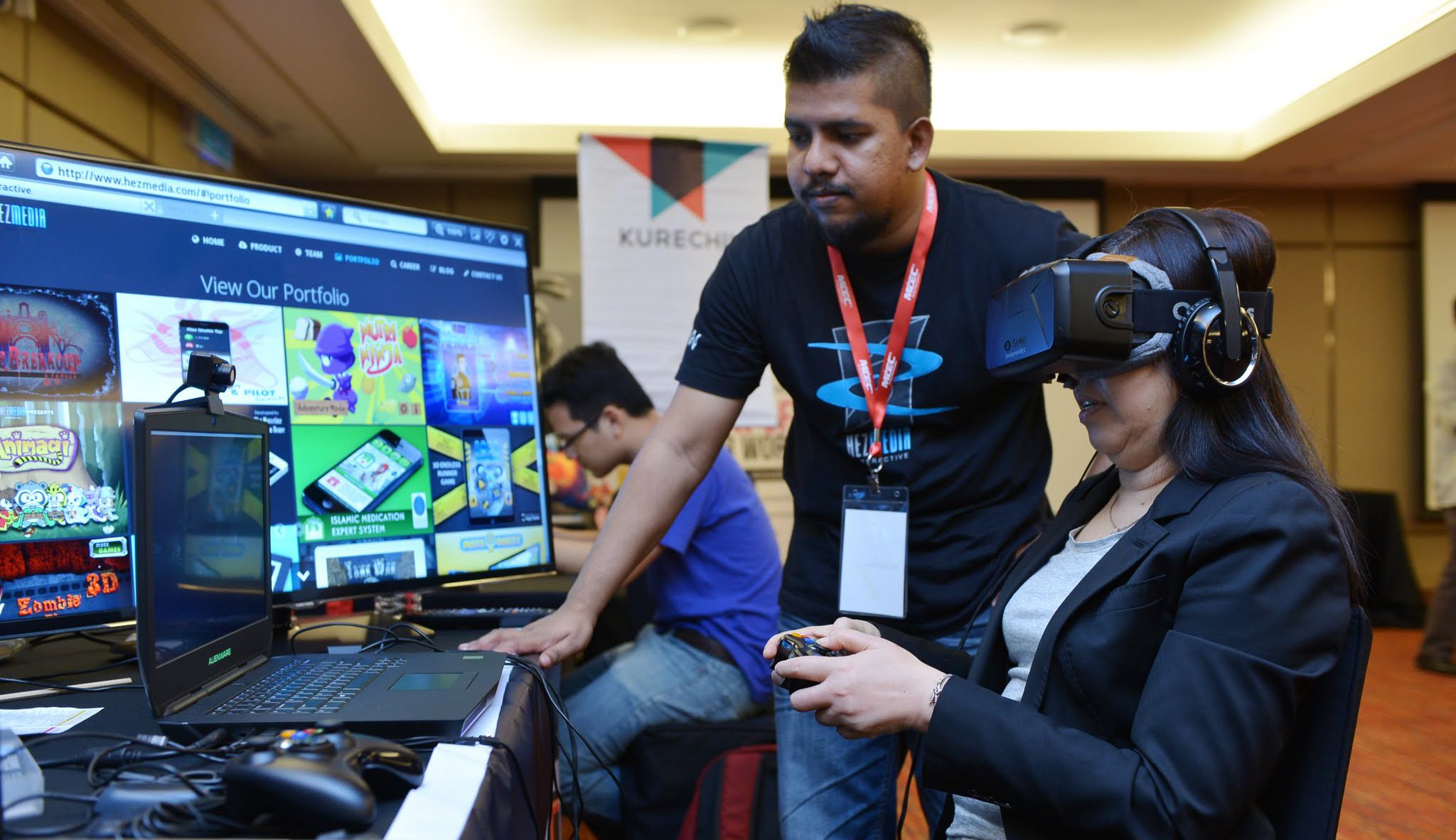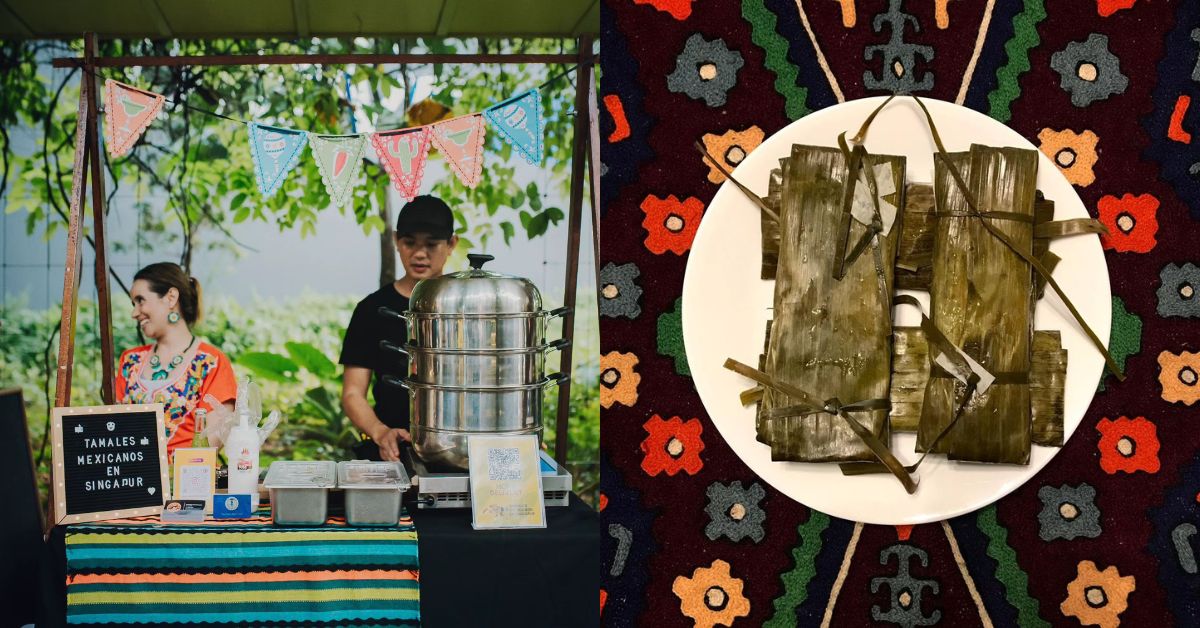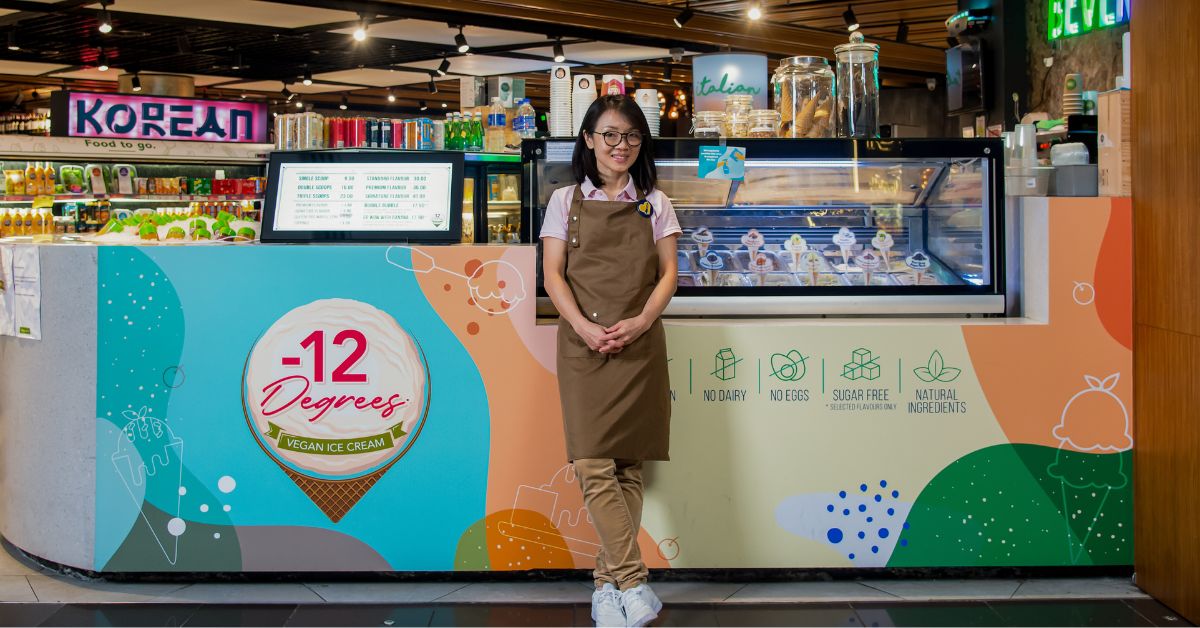The gaming industry across the globe continues to grow exponentially, especially in Asia-Pacific where statistics have shown that it has dominated the global video game market for years. In 2015, revenue from the game market amounted to 43.1 billion U.S dollars, which is almost double the North American revenue.
We’ve written before about some of the very talented gaming studios in Malaysia who have had a part in developing big name games such as Uncharted 4, Terminator Salvation and Mortal Kombat X.
There’s a lot of untapped potential in our country; Hasnul Hadi Samsudin, Director of Creative Content and Technologies for Malaysia Digital Economy Corporation (MDEC) is very optimistic on our nation’s propects in becoming one of this region’s leading gaming hub.
Hasnul is an avid gamer himself, and loves animation and films. Throughout his career, he’s been involved in organisations such as the MSC Malaysia Animation and Creative Content Center (MAC3); Rhythm & Hues Malaysia, the Oscar-winning Visual Effects studio and in Sony Computer Entertainment.
He said, “Malaysia has a huge potential to be the game hub in Southeast Asia, with the majority of game companies (61%) in the region involved in the industry being game developers. We see this as a good opportunity for Malaysia to tap into this vast market, in line with our goal to position Malaysia as a regional hub for games.”
From interviewing him, here are 4 reasons we’ve gathered as to why Malaysia can become the next big gaming hub in our little corner of the world.
1. We’re positioned strategically in a region with a high growth rate.
Though the Southeast Asia video game industry may be relatively young, it is driven by the rapid rise in internet access and ownership of ICT devices. Hasnul explained that the market has an expected growth at a compound annual growth rate of 30% between 2015 and 2018.
“This is the fastest growth of any geographical region. In comparison, the global growth rate is estimated at 7% for the same period. Today, the region video games market represents approximately 4% of global consumption, and the numbers are projected to climb rapidly in five years’ time,” shared Hasnul.
Speaking of Malaysia specifically, he said, “We are seeing an increase in our talent pool in terms of quality and quantity. As our talent matures through valuable experiences and learning, the local creative ecosystem will certainly improve from the knowledge gained from working with top international game developers.”
2. Malaysian e-sports is growing exponentially.

Once e-sports gained official recognition from our government as a legitimate sport, the community in Malaysia has continued to grow over time.
Games such as DOTA 2, Counter Strike, League of Legends and World of Warcraft have been taking over the globe, including in Malaysia where we’ve had our representatives become champions in major events.
These are big steps forward for e-sports in Malaysia. The exposure our champions get allows other gamers to consider a career in gaming themselves as well as in the broader creative content industry.
“One of the biggest steps this year we’ve seen for e-sports has been Astro becoming the first TV network in Southeast Asia to launch a dedicated 24/7 eSports channel called eGG (Every Good Game). E-sports is a growing global phenomenon among the millennials and is expected to reach over 218 million audiences worldwide by year end 2016,” said Hasnul.
Just recently, Malaysia even played host to the CS:GO Minor Championship ASIA, organised in collaboration by PGL and eGG Network held at the Pinewood Iskandar Studios in Johor Bahru. This event saw some of the region’s top CS:GO teams in attendance.
3. We already have local talent making a name for ourselves internationally.

Just this year alone has seen the local gaming industry grow and progress tremendously when it comes to game development. This allowed them the opportunity to collaborate with huge names in the international industry. Every gamer’s dream example would be Wan Hazmer and his collaboration with Square Enix as the lead game designer for the latest entry into their best-selling video game series, Final Fantasy XV.
Earlier this year also saw Passion Republic collaborating with Naughty Dog for Uncharted 4: A Thief’s End, a critically-acclaimed top-selling game worldwide. This itself is already a testament of Malaysia growing as a creative content hub, with the right talent to thrive in the industry.
Hasnul believes there is still so much undiscovered talent within our own borders. “Take Wan Hazmer, for example. If he can make it into a world-renowned studio such as Square Enix, other local game artists and designers can also achieve the same success or even surpass those achievements in future,” said Hasnul.
4. Our community is moving from consumers to creators.
Many game developers have a common starting point: they were gamers first who loved the experiences they had, and wanted to create something of their own.
“The gaming industry is much more transparent today. People play games and they want to know how it works. Most importantly, gamers have great imagination or great stories that they want to convey through games and share with everyone. It’s almost similar to being a writer or a filmmaker—you have great passion for games, a captivating story and you want to share them with other gamers in the world,” said Hasnul.
He goes on to say how rewarding it feels when a gamer is able to create a game himself that leaves a lasting impression such as Candy Crush, Counter-Strike and Final Fantasy to name a few.

Malaysia has begun taking the first few steps in discovering incredible creative talents to help identify and invest in their ideas that can enhance the nation’s talent pool. Events such as Kre8tif! Conference, LEVEL UP, IMGA and more are some chances our local community can join to be noticed for their creativity and innovation.
As part of its commitment to building a world-class gaming ecosystem in Malaysia and the region, MDEC is set to host LEVEL UP KL 2016, one of Southeast Asia’s premier gaming conferences, to be held in Kuala Lumpur this coming 5th to 9th November.
The event seeks to bring together prominent international and local players in the gaming industry to interact, educate and share knowledge on a wide range of subjects from content development to fundraising and business development and marketing.
“Fuelled by our local-grown talents, the government’s continuous support and market openness to investors, Malaysia is leading the charge to accelerate the growth and development of the games industry with our rising reputation as the leading hub for games development in Southeast Asia. MDEC is committed to recognising and investing in talent pool as well as facilitating opportunities for game IP creation and commercialisation,” said Hasnul.
The convention doesn’t cater to just game developers. Even regular gamers can benefit from this 5-day convention. Participants can expect to listen to over 40 key industry players from various studios in just one convention where they will be sharing their valuable insights and experiences within the gaming scene.
Other activities include the SEA Game Jam, which is a 36-hour, non-stop display of the raw art of game-making; GameFounders Asia Demo Day which highlights the most promising graduates from its 3-month accelerator program; and the International Mobile Gaming Awards SEA 2016 happening at Level Up KL 2016.
To buy tickets and for more information regarding the convention, click here.
Feature Image Credit: MDEC









